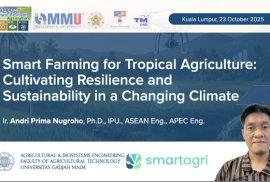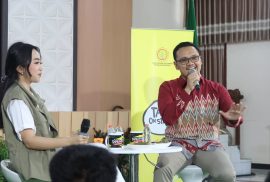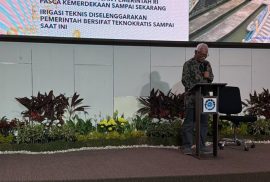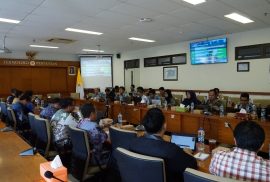
Yogyakarta, July 31, 2025. A research team from the master’s Program in Agricultural Engineering, Department of Agricultural and Biosystems Engineering (DTPB), Faculty of Agricultural Technology, Universitas Gadjah Mada (FTP UGM), has earned the Best Paper Award at the 6th International Conference on Smart and Innovative Agriculture (ICoSIA 2025), held on July 30–31 as part of the UGM Annual Scientific Conferences (UASC 2025).
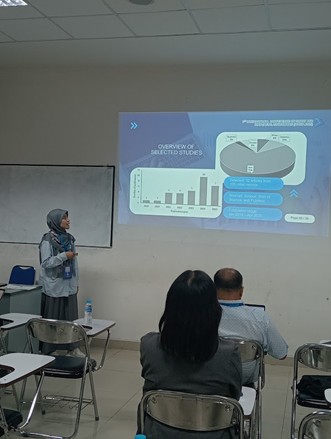
ICoSIA 2025 featured seven symposiums covering key themes such as big data in agriculture, precision nutrition, land and environmental management, and sustainable food production—making it a vital platform for exchanging ideas and research on agricultural innovation. The team’s recognition reflects not only their academic excellence but also DTPB FTP UGM’s dedication to advancing agri-food technologies through engineering and data science.
The paper was authored by Nadya Hafidzatun Nisa (UGM), Dr. Rudiati Evi Masithoh (UGM), Muhammad Fahri Reza Pahlawan (Chungnam National University, South Korea), and Andra Tersiana Wati (UGM). Nadya presented their study in the Smart and Precision Agriculture Symposium. Titled “Application of Machine Learning and Deep Learning to Detect Adulteration in Food Flour Based on Spectroscopy Data: A Systematic Review,” the paper explores the use of advanced AI techniques to detect food adulteration as a proactive effort to enhance food quality and safety.
This achievement also represents a tangible contribution to the Sustainable Development Goals (SDGs). The research supports SDG 9 (Industry, Innovation, and Infrastructure) through the application of intelligent technologies—machine learning and deep learning—for food quality monitoring, driving innovation in the agri-food sector. It also contributes to SDG 2 (Zero Hunger) by enhancing food safety systems, which are essential for sustainable food security. Notably, the team includes Nadya Khafidzatun Nisa, Andra Tersiana Wati, and Dr. Rudiati Evi Masithoh—three female researchers whose active involvement reinforces SDG 5 (Gender Equality). Their contribution highlights the strategic role of women in science and technology, particularly in advancing agricultural and food innovation on the global stage.

